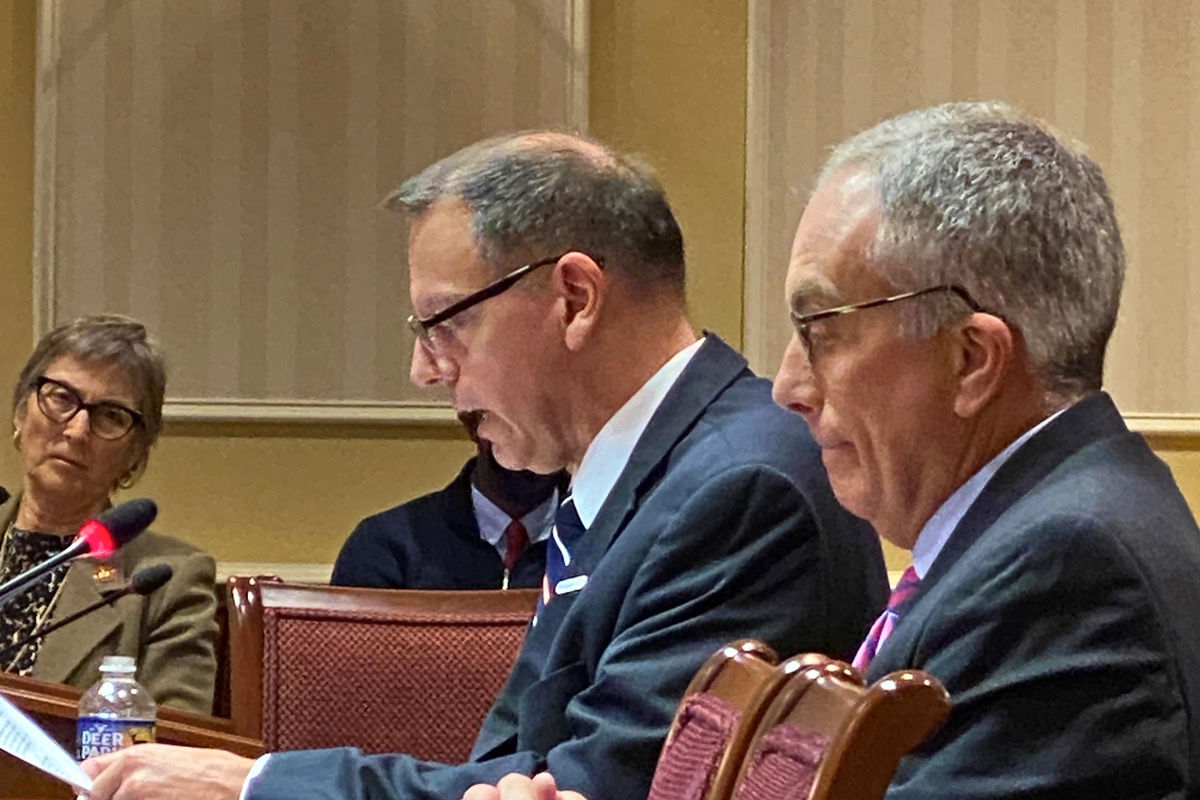Maryland 529 chair resigns, one day after heated legislative briefing over troubled college savings plan

The chair of Maryland 529, the state’s troubled college savings plan, abruptly resigned from the board Friday, a day after a heated briefing before a joint committee in the House of Delegates during which the program was sharply criticized for recent failings.
Petros L. Tsirigotis, Maryland 529’s chair since last February, submitted his resignation to the other board members by e-mail just before 2 p.m., saying that the demands of the position have increased “over the past few years” and that “as a volunteer, this is too much for me to be able to commit to.”
“I believe that the best way I can serve the board is by moving aside and allowing others who have the ability to allocate the time and resources to lead the board through this year’s challenges, especially with regard to the Prepaid Trust, to do so,” Tsirigotis wrote.
The passing mention of the Maryland Prepaid College Trust, which has had problems since last year, was as close to he came to referencing recent complaints or the meeting Thursday with legislators from the Appropriations Committee and Ways and Means Committee, which share jurisdiction of the independent agency.
Anthony P. Savia, who took over as executive director of Maryland 529 just last summer, issued a statement on Tsirigotis’s sudden exit.
“The Maryland529 board and staff would like to thank Peter Tsirigotis for his dedication and service as the Maryland529 board chair and wish him well in his future endeavors,” Savia’s statement read. “Vice Chairman Geoffrey Newman will serve as the interim board chair until a new chairperson is elected at the February 23, 2023, board meeting.”
Efforts to reach Maryland Treasurer Dereck E. Davis and Comptroller Brooke E. Lierman, both Democrats who are ex-officio board members, were unsuccessful late Friday afternoon.
Members of the two House committees grilled Tsirigotis and Savia for nearly an hour Thursday over the agency’s struggle to make payments to some families since last fall because of an interest rate calculation error. House Speaker Adrienne A. Jones (D-Baltimore County) sat in on the session.
Since last summer, parents have complained that they have been unable to access interest earned in the Prepaid College Trust portion of the 529 program, which is named for a section of the federal tax code. Plan administrators say they froze access to the interest on the accounts in August because of an accounting glitch that occurred when they switched from one outside vendor to another.
The full extent of the problem with the Trust accounts remains unclear.
While parents have been able to access their principal of their savings, many have complained of not being able to pay tuitions as the bills have arrived. Families, frustrated by the ongoing fall-out from the glitch, have banded together online and are threatening to sue the plan.
Agency officials have said at least 419 of 480 accounts that were flagged for concern have been reviewed. But officials say that only some account holders were directly notified about the interest rate calculation error by email, while the accounts slated for review were brought to the attention of the agency by the account holders.
A second state-backed savings program, the College Investment Plan, is administered by an outside money manager and is unaffected by the accounting glitch, officials have said.
Tsirigotis and Savia told the House committees that the board has been working to correct the calculation errors both to ensure that families receive what’s fully due to them and that no one receives more than they should.
In his final days in office, Gov. Larry Hogan (R) wrote to Tsirigotis, expressing alarm over the challenges that families have encountered when they attempted to tap their earnings to make tuition payments.
“I am gravely concerned by these constituent accounts of their experiences, as well as recent media reports regarding apparent financial discrepancies impacting account holders and their beneficiaries,” Hogan wrote in the Jan. 16 letter, obtained by Maryland Matters. “A thorough and public discussion about the circumstances that led to this unfortunate series of events and an examination of any necessary governance and oversight changes will be important to restoring public confidence in the Trust.”
Hogan wrote that he expects “the board and staff to provide timely, accurate and complete information to the executive branch, legislature and constituents” and to make “significant efforts to improve both internal and external communication with all impacted stakeholders.”
“There is still too much confusion as well as a lack of clarity and even basic information regarding how this situation was created and how it will be resolved,” Hogan wrote.
Maryland 529 officials will face more legislative scrutiny next week, when they are scheduled to brief the Senate Budget and Taxation Committee on the program.
Bruce DePuyt contributed to this report.




 Creative Commons Attribution
Creative Commons Attribution